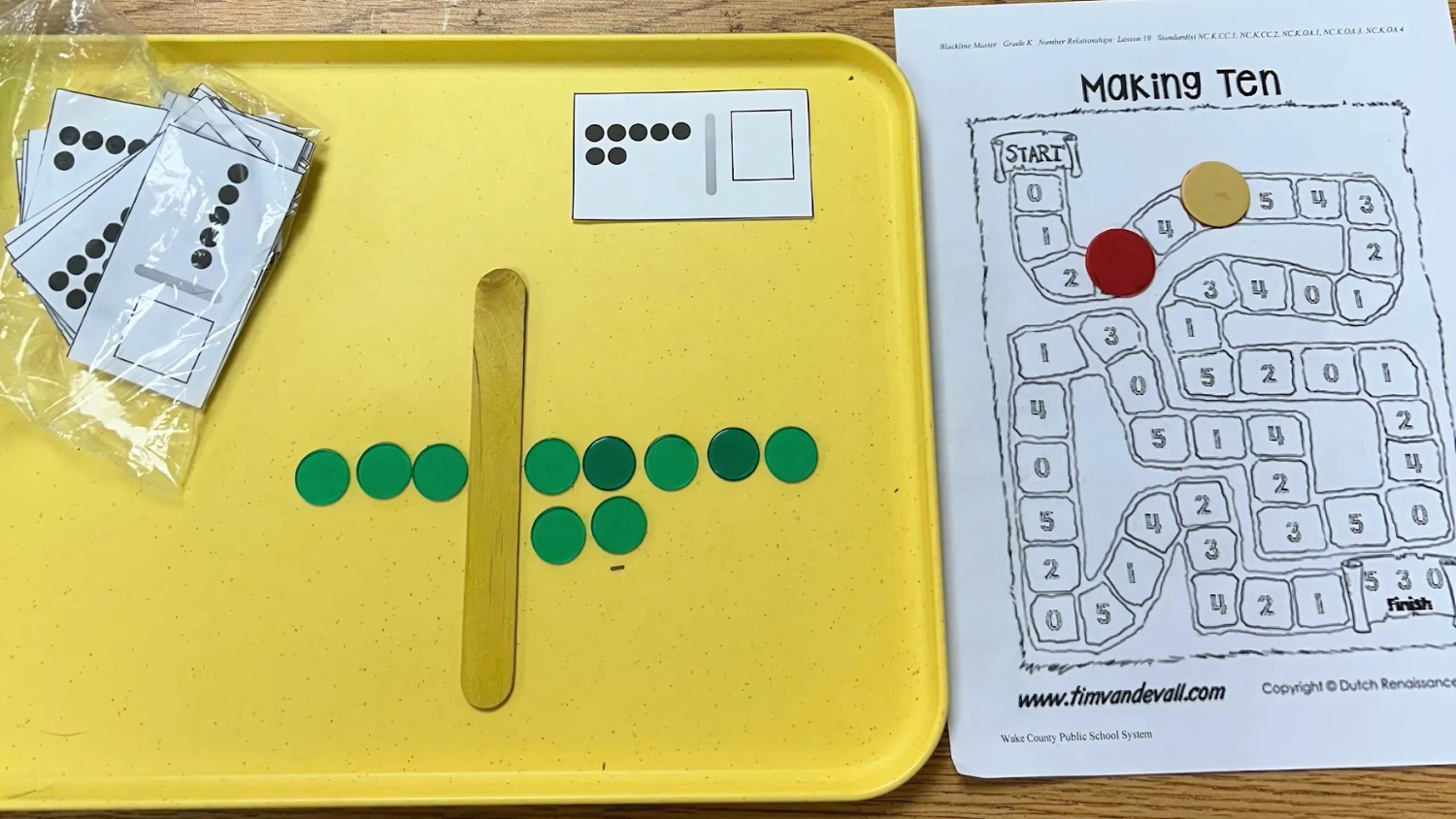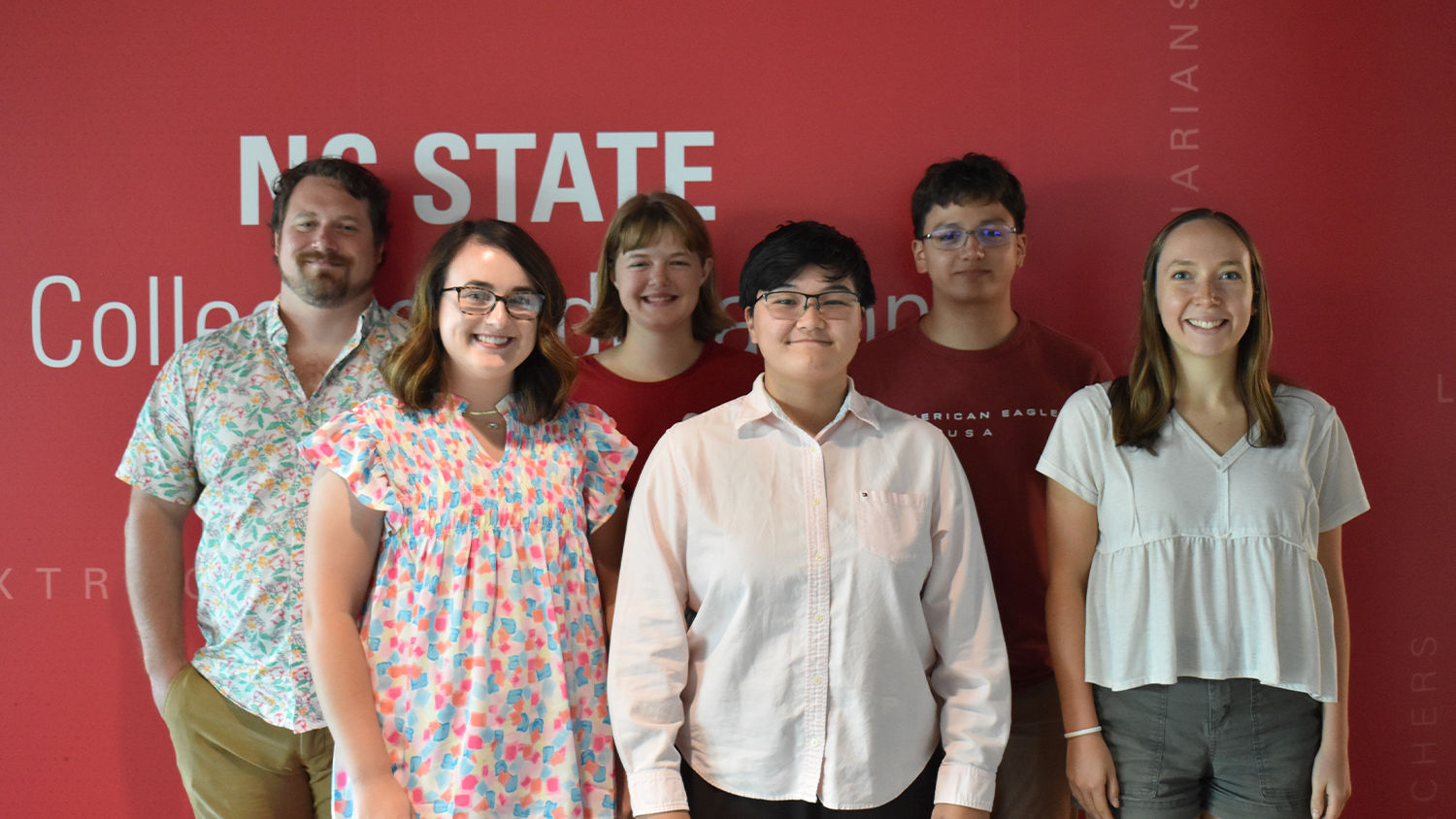‘ I Knew They Did Things Differently:’ NC State Educational Leadership Academy Helps Educators Become Strong School Administrators
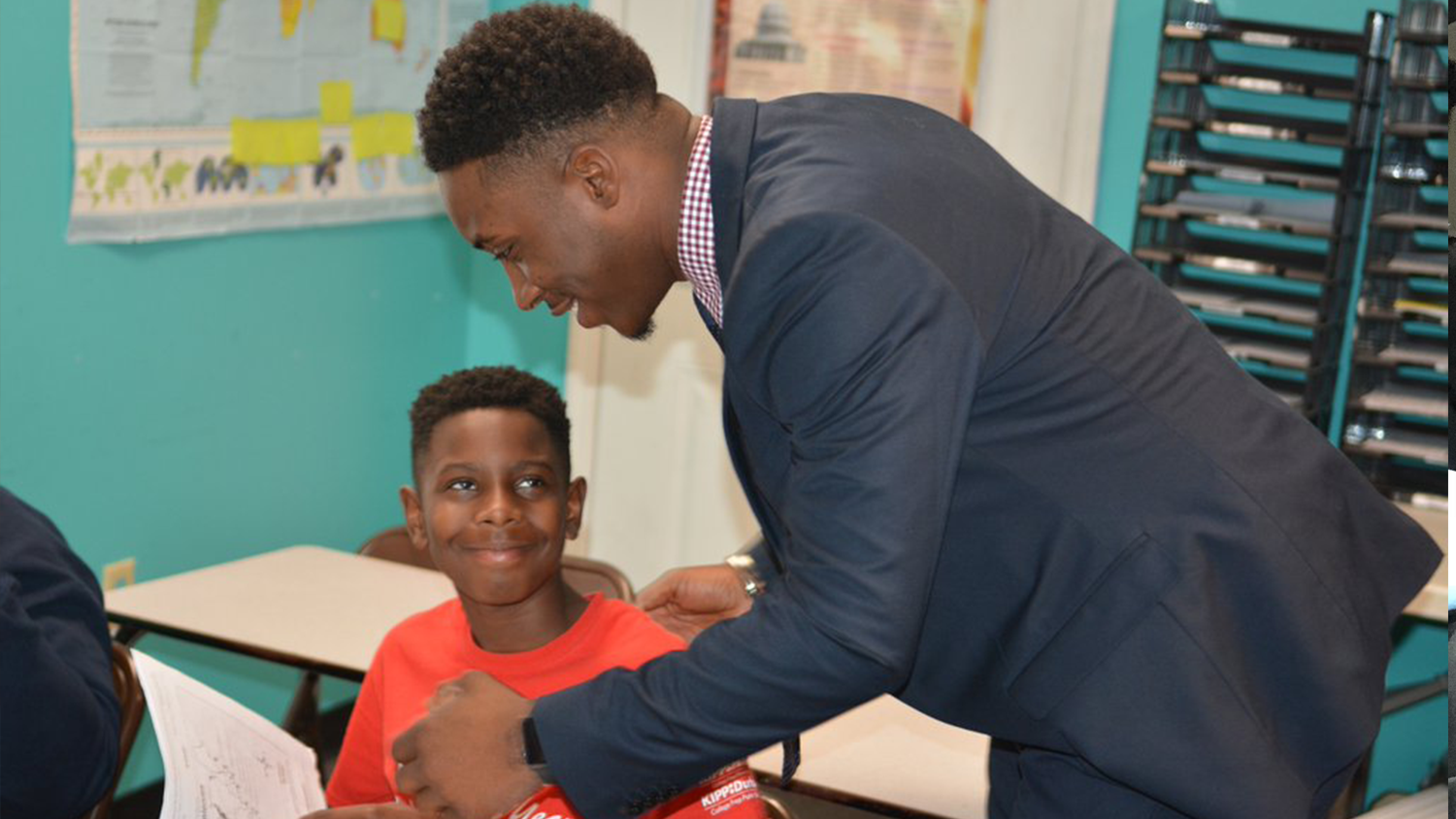
Tiffany Boss ’18MSA had taken on multiple leadership roles at the elementary school where she worked when her principal suggested that she attend an interest meeting for the NC State Educational Leadership Academy (NELA).
Despite her existing roles – manager and facilitator of the school’s intervention program, testing coordinator and interventionist– Boss didn’t feel she was ready to become a school leader. At the insistence of her principal, she reluctantly agreed to attend the meeting. When she heard Professor Bonnie Fusarelli address the group, Boss realized that earning her Master of School Administration (MSA) from the NC State College of Education might be the right choice after all.
“Dr. Bonnie Fusarelli said, ‘Some of you are here because someone made you come,’ and I started laughing because I felt like she was talking to me. Then she said, ‘You all make the best administrators,’ so that’s when I knew NC State was the right choice for me,” Boss said.
Boss, now the principal of Burton Magnet Elementary School in Durham, is one of more than 420 alumni who has earned her Master of School Administration from the College of Education since the NELA program began in 2010. These graduates, along with current students, will all gather together for the first time in the program’s history on Oct. 20 and 21 at the NC State Principal Preparation Leadership Conference and Reunion.
During the two-day event, which was coordinated by Associate Director of Principal Preparation Lesley Wirt, the NELA alumni and students, as well as faculty and executive coaches in the program, will engage in professional development sessions, a panel discussion with several North Carolina superintendents and networking opportunities.
“It has been 10 years since the first NELA cohort graduated in 2012, and we are finishing up a Wallace Foundation University Principal Preparation Initiative grant this year, so we thought this reunion would be a wonderful way to celebrate the work,” said Associate Professor of Educational Leadership and Policy Tim Drake. “We have an incredible group of leaders, and we want to provide a way for them to leverage the NELA network to better serve their students, schools and communities.”
Becoming a National Model for Principal Preparation
NELA originally began with a cohort of educators from northeastern North Carolina with the goal of increasing student achievement by preparing and retaining principals for historically low-performing schools in the high-needs area. The program has since expanded to include multiple cohorts, with students and graduates serving nearly a quarter of public school districts in the state.
The innovative Master of School Administration principal preparation program is one of only six out of 774 in the nation that has been recognized as exemplary by the University Council for Educational Administration and graduates of the program have cumulatively been named Principal or Assistant Principal of the Year 26 times.
Schools led by NELA graduates have a history of improved student outcomes, with 90% of program graduates having met or exceeded growth expectations in high-need and Title 1 schools, compared to 75% of all principals in North Carolina. Students at middle and high schools led by NELA graduates have seen decreases in discipline incidences and suspensions, improved attendance and increased academic growth.
The program’s history of school improvement is part of what drew Kelly Garcia ’24MSA to enroll in the College of Education.
A veteran educator who already works as an assistant principal at Green County Intermediate School, Garcia said that in her previous roles as a teacher and literacy coach, she felt there was more that could be done to help students in her high-need district, but she couldn’t quite figure out how to make the necessary changes.
“I felt like really focusing on leadership and curriculum and how I could impact student learning through that would give me a different perspective on something we could do differently. The recognition and resume behind NC State’s program made me want to be a part of it, because I knew they did things differently,” she said.
Building School Culture and Diversity Through Leadership

In addition to its impact on historically low-performing schools, the NELA program has also become a national model for preparing dynamic leaders who positively impact a school’s culture.
For LeShaun Jenkins ’20, principal of W.A. Pattillo Middle School in Tarboro, the classes he took related to culture during his time in the program were some of his favorites and provided him with a roadmap for how to create culture as a school leader.
During a human resources class, he recalls being given an assignment to design his dream school, thinking about the types of experiences he would want for students and teachers, what the core values of the school culture would be and what the schools’ mission statement would be.
“This was a 27-page project, but it was worth it. There are some elements that went into that project that have gone into my real school,” Jenkins said.
In building culture as a school leader, he also drew on lessons learned from Associate Professor Lisa Bass. Through Bass’ course, Jenkins learned about the tenants that are important to school culture. In his role as a principal, he has focused on those tenants that most resonate with students, teachers and the local community.
For example, he drew on the historical tenant to design a week-long module for all history classes, so students would have an opportunity to learn about the history of the school. The schools’ mission statement was also designed based on this history, and students are gearing up to celebrate the schools’ centennial next year.
“Pulling in those tenants really are ingredients for good school culture, and I’m bringing them to life and allowing kids to have a role in designing them. I’ve really been able to resuscitate culture at a school that I don’t think has been culturally functional for some time,” Jenkins said.
In addition to creating school cultures students can take pride in, NELA graduates are also helping to create a more diverse educator workforce. With more than 50% of all cohort members identifying as a person of color, the College of Education’s principal preparation program is the most diverse in North Carolina and among the most diverse in the nation. This is crucial, as research shows principals of color tend to hire and retain more teachers of color and research shows students perform better in certain subjects when they have at least one teacher who looks like them during their K-12 education.
Tracy Hill ’22MSA, assistant principal at Gray’s Creek High School in Hope Mills, is proud that, as a woman of color who came from a low-income family, she has the opportunity to serve as a role model for other students like her.
“I have been one of very few African American administrators who have been on this campus since this school started. I even had one student share that she was so relieved to see an African American administrator in our building this year,” Hill said. “ I need people of color, children of color, to see that I can be in charge, I can be a leader.”
Preparing Future Leaders with Hands-on Training
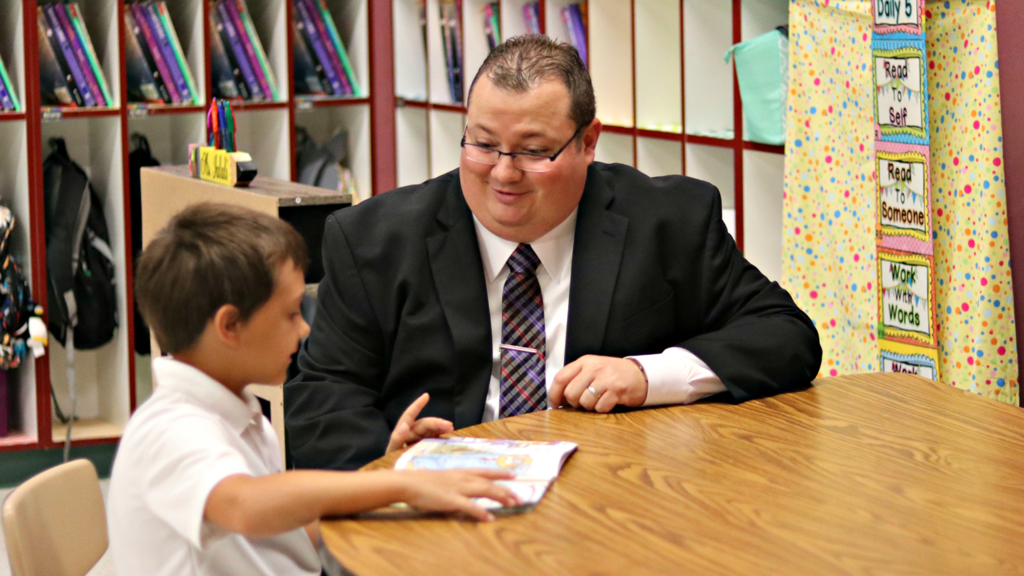
NELA’s innovative approach to principal preparation combines coursework with hands-on experience in school leadership through a year-long internship. This practical approach lets future school leaders experience the ins and outs of an administrative role before they eventually lead a school of their own.
“I think the internship is probably the number one thing that prepared me to be an administrator,” said Juliana Thompson ’16MSA. “No matter how good the training, no matter how good the textbook and no matter how good the professor is, it does not prepare you for doing this work like actually doing the work does.”
One of the key components of the internship is that aspiring school leaders are placed in a different environment from where they spent the majority of their career in education. For example, Boss, whose past experience was in elementary education, completed her internship at the middle school level.
The experience, she said, taught her about dealing with elements of administration that don’t exist at the elementary level, such as the logistics of sports practices or working with teachers who specialize in teaching only one subject. On the other hand, she was also able to bring her past elementary school experience to her role, helping teachers to work across departments and subjects to focus on the whole child.
“We were able to have some really crucial conversations about how to meet the students’ complete needs and not just focus on one area,” she said.
One of the biggest benefits to the internship, graduates said, was that they were able to experience the challenges of working as an administrator while also having the opportunity to get feedback and ask questions of her professors and executive coach on a regular basis.
The internship experience is also why Thompson, who currently serves as the superintendent for the Roanoke Rapids Graded School District, feels confident when she hires a fellow NELA alum to lead one of her schools.
“Because of the fact that NELA has that full-time internship, you know that when you hire a NELA graduate, they have experience,” she said. “When you look at the resume of somebody who has gone through a traditional program, you know there were practicum hours, but I think the internship experience is so different when you’re actually managing people.”
Relying on NELA Beyond Graduation
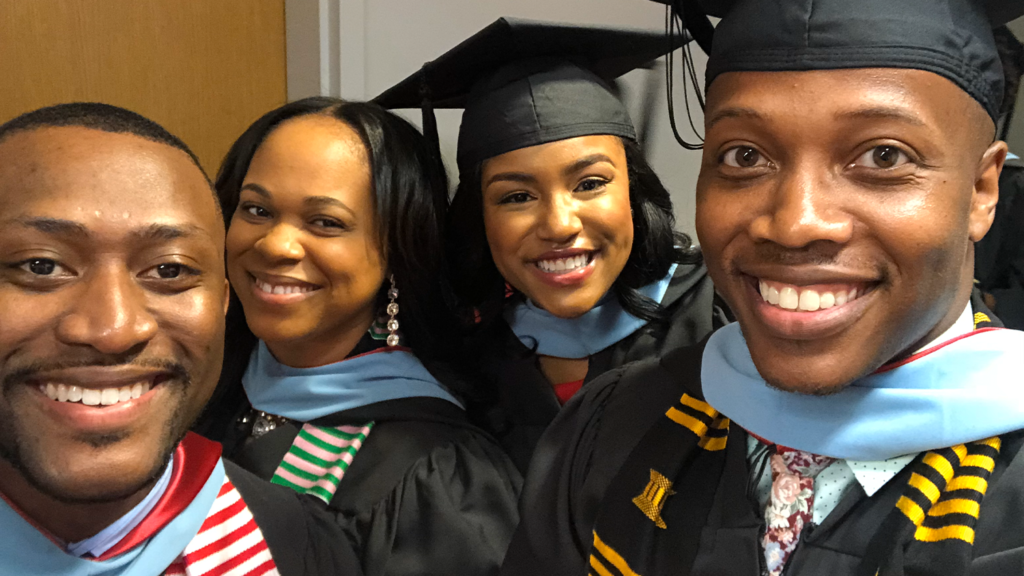
Beyond their internship experiences, several NELA graduates have shared how they still rely on both the lessons they learned during their time in the College of Education’s principal preparation program, as well as on their cohort members, when leading.
Hill recalls learning about professional learning communities (PLCs) during her coursework, a lesson she has been drawing on recently as she oversees the math PLC at her school.
“I still have the PLC+: Better Decisions and Greater Impact by Design book [from that course] on my bookshelf. I look at that book all the time because it helps me help the teachers understand the real purpose of the PLC and to help them use the PLCs to help our kids grow,” she said.
One of the lessons several graduates say they rely on in their role as a school leader surrounds crucial conversations, or how to have difficult conversations with faculty, staff, parents or community members.
The lessons, taught in a class with Assistant Teaching Professor Fran Riddick, help leaders learn to reflect on how they listen to people and make sure that they are really hearing and absorbing what is being said, instead of just formulating a response in their head while the other person talks.
As a superintendent who has worked with current NELA interns as well as other administrators in her district, Thompson said she still keeps the Crucial Conversations: Tools for Talking When Stakes Are High book on her office bookshelf and pulls it down frequently to share with colleagues when she knows they need to prepare for an important or difficult conversation.
“I’ve got my pages bookmarked, and I’ll say, ‘You’ve got a really important conversation coming up that you need to plan for. I want to give you thi,s and I want you to read this part, so you can plan your conversation accordingly.’ Without NELA, I don’t know that I would have had that training,” she said.
Although the conference and reunion will be the first time in NELA’s history that graduates from all past cohorts will have the opportunity to gather in one place, many keep in contact with their cohort members for support following graduation.
“One of the greatest benefits to organizing the MSA program by cohorts is that they become a family, and you need that support structure when you’re on the job as a school leader because the work is hard,” Drake said. “There is no substitute for being able to turn to someone who knows you so well and is engaged in the same work as you.”
Boss, who recently re-enrolled in the College of Education to earn her Ed.D in Educational Leadership concentration, said she is in daily contact with several people from her cohort to help bounce ideas off one another or share advice about handling a sensitive situation.
“You’re not alone. They say leadership is very lonely, but I don’t feel like I’m alone. I always have someone I can contact,” she said.
Just as they share experience with each other, the NELA alum who are returning for the reunion have expressed excitement about the opportunity to share their experiences with finding placements and becoming school leaders with those educators who are currently going through the program. It’s an opportunity that current students are excited to have as well.
“I’m just looking forward to learning from colleagues who have been a part of this program and how that has helped them in their current roles,” Garcia said. “Hearing their reflections on which pieces really helped them, what they’ve been using and suggestions they have for helping us become who we want to be as leaders, I’m looking forward to that.”
- Categories:
